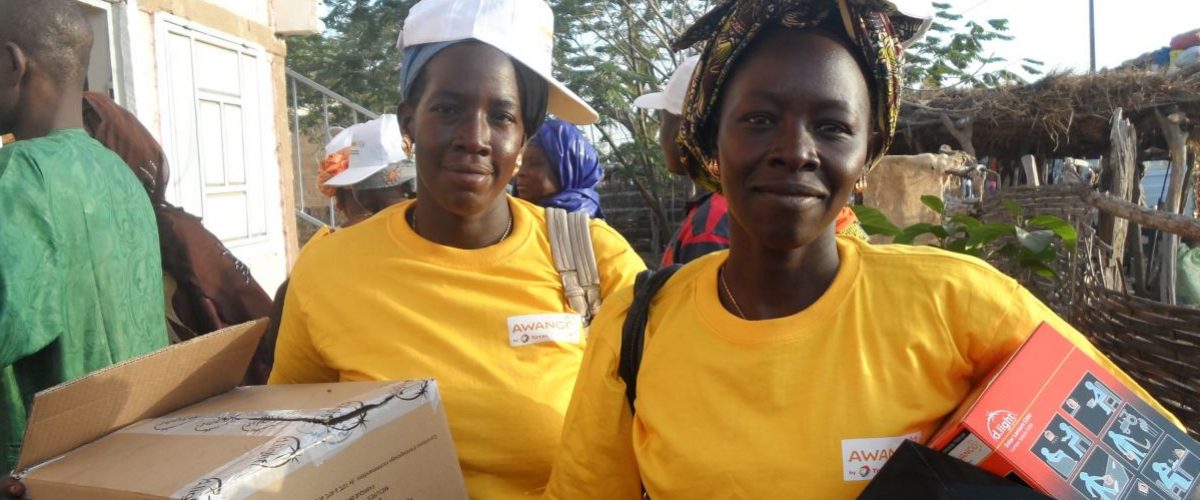In Senegal, the average electricity access is 57 percent, in rural areas it is 27. In the regions of Tambacounda and Kedougou, Eastern Senegal, where ENERGIA is working with local partner GVEP, the percentages of access are as low as nine and four. Delivery of off-grid solar products is therefore critical to improving the livelihoods of people within these communities. GVEP is supporting women entrepreneurs to do this, in collaboration with TOTAL.
The problem: Reaching beyond filling stations
TOTAL is the sole importer of d.light products into Senegal. GVEP thought it would be good to work with Total is that TOTAL has a Corporate Social Responsibility (CSR) objective to deliver solar products to the last mile. However, while TOTAL is able to deliver the products to their filling stations, it has proven hard to move them beyond that. The products have been piling up in storage and TOTAL had not been reaching their market target. GVEP saw this as an opportunity for the network of women entrepreneurs to expand their business.
When GVEP first approached TOTAL and informed them that they were working with women entrepreneurs running businesses at the last mile who were eager to sell off-grid solar products, TOTAL did not understand who these women entrepreneurs were and thought it too great a risk to engage with them. This is where the WE programme came in.
A win-win collaboration
Through the WE program, GVEP and TOTAL signed a Memorandum of Understanding with the objective of accelerating the deployment of solar energy products. 36,000 solar lanterns, some of them with phone charging facility, are being being sold by 150 groups of women entrepreneurs—each group consists of 20 to 50 women—in 344 rural villages of Tambacounda and Kedougou. The women pay, as a group, 25 percent of the product costs up-front and have the possibility to repay the remaining amount of the purchased price in 60 days. GVEP facilitates these sales on credit terms through a loan guarantee fund that guarantees payment of the full amount of the remaining 75 percent of the purchase price. Thus, in case there is any default (though there has not been any!), TOTAL has the assurance that the risk is mitigated.
Another advantage is that as TOTAL is already transporting products to Tambacounda and Kedougou, the women entrepreneurs are able to piggyback on their distribution chain and cut down transportation costs. This makes the price that the women are able to sale the solar products much more competitive. Thus, although the starting point is 36,000 units, it is very likely that this will grow exponentially. This is a win-win collaboration: It works for TOTAL and it works for the women who are running credible businesses.
This article was first published as part of an interview with Sheila Oparaocha by Power for All







